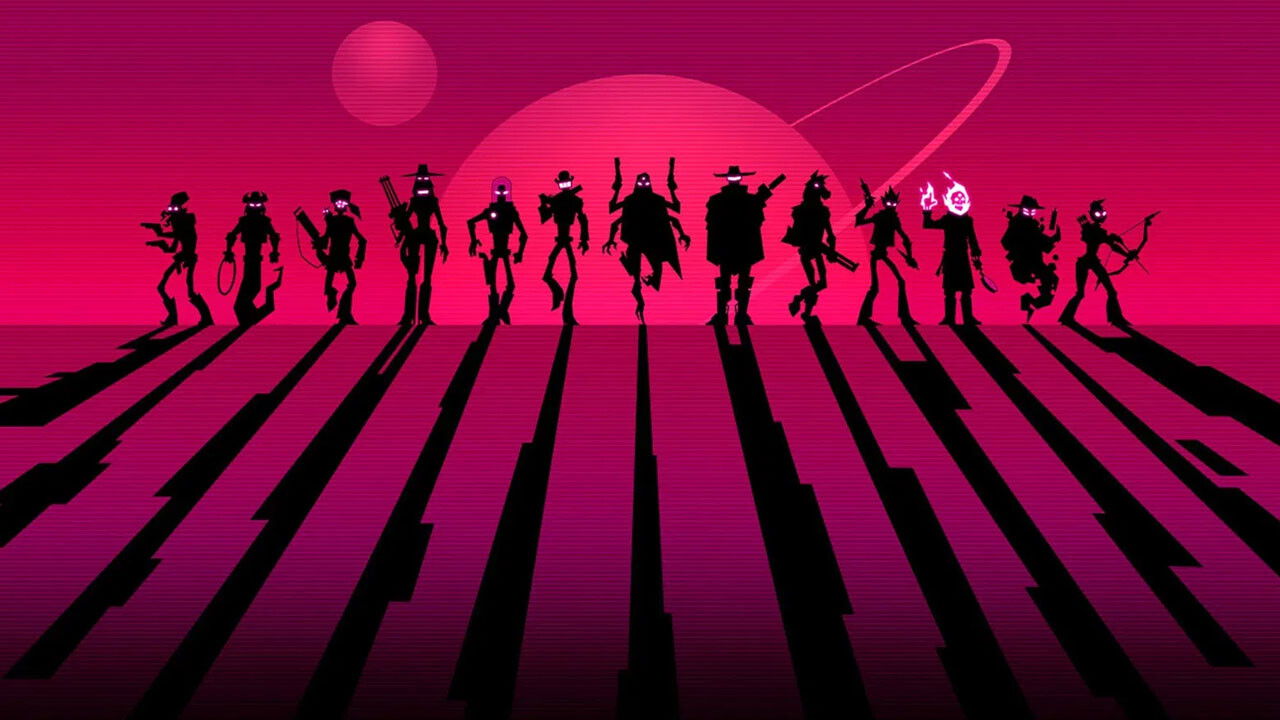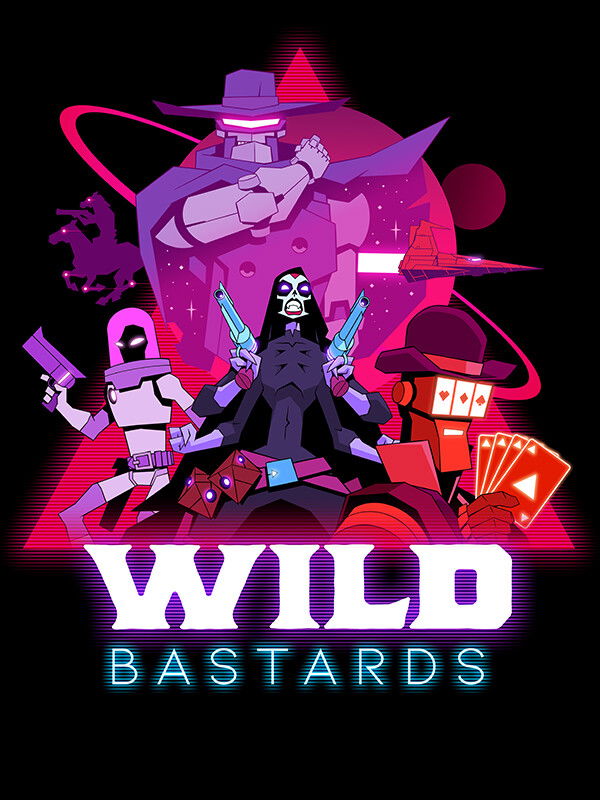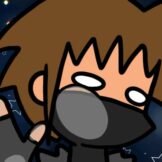I knew I was going to enjoy Wild Bastards after I had a chance to preview it back in June, but I don’t think I was ready for how much it was going to feel like a breath of fresh air in lieu of the events of the previous week. I only had a taste of the game, but I was ready for the whole plate—and what a delicious plate it was.
Wild Bastards is a true testament to creative design, seamlessly blending multiple genres and styles in a captivating, engaging, and deeply entertaining way. Like the best roguelites in the genre, every time I sat down to play, I found myself lost in it for hours.
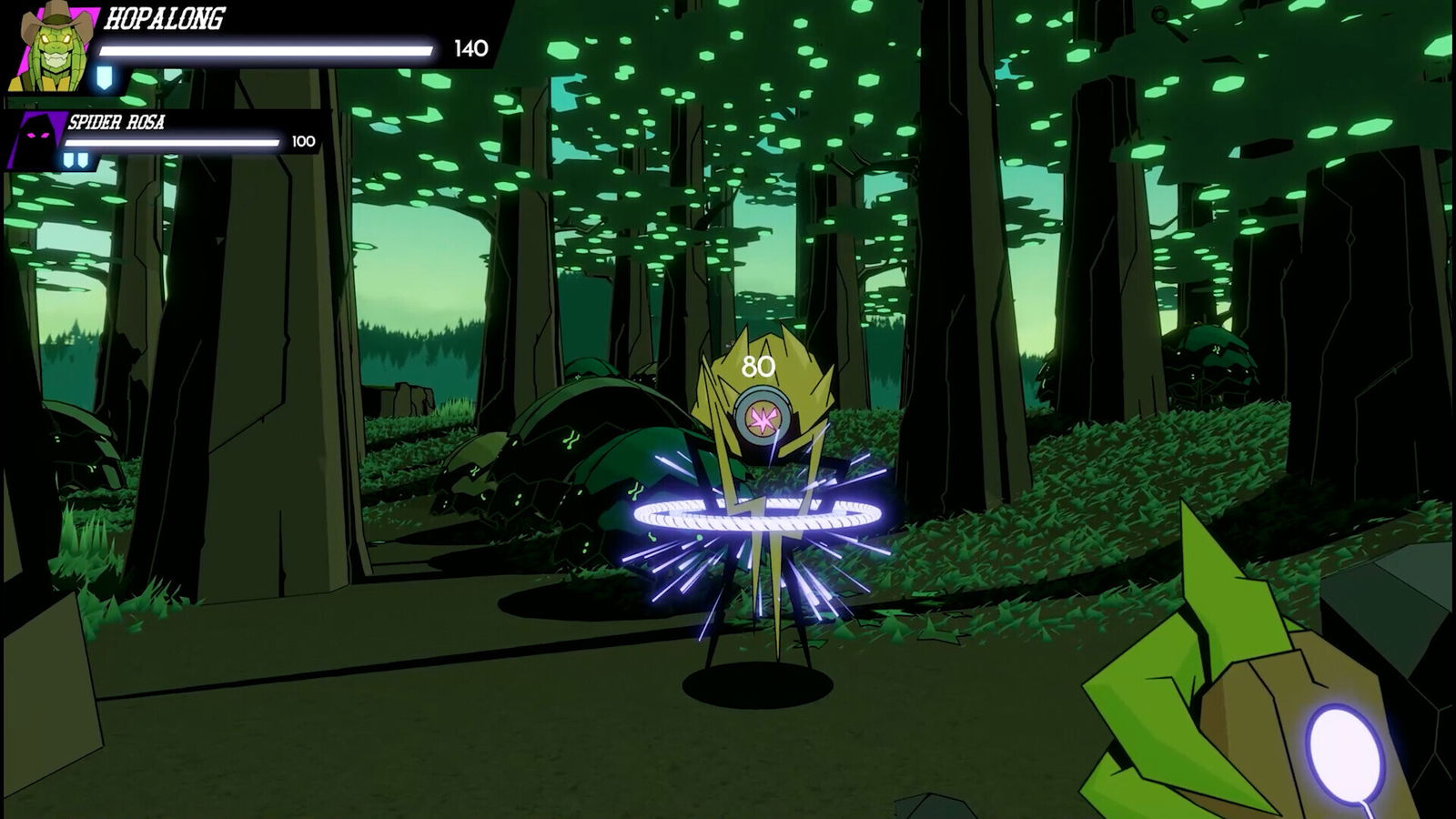
While I covered some basics in my preview, I was genuinely surprised by how much more Wild Bastards had to offer. The story appears straightforward: a notorious gang of outlaws known as the Wild Bastards is being led by a legendary ship, The Drifter, to a peaceful planet called the Homestead. However, nearly every member of the gang has been gunned down by a family of lawmen known as the Princes.
The two remaining members of the gang—an arachnid alien named Spider Rosa and a smooth-talking, fast-gambling robot called Casino—are led by The Drifter across galaxies to recover Helix chips from their fallen comrades and bring them back from death’s grasp.
The premise is straightforward but has that roguelite charm, with just enough mystery to keep players engaged and eager to learn more. The Drifter clearly has its own motives, and there are frequent mentions of a company called Chaste, which not only employs the Princes but also seems to have a strange, far-reaching influence across the cosmos.
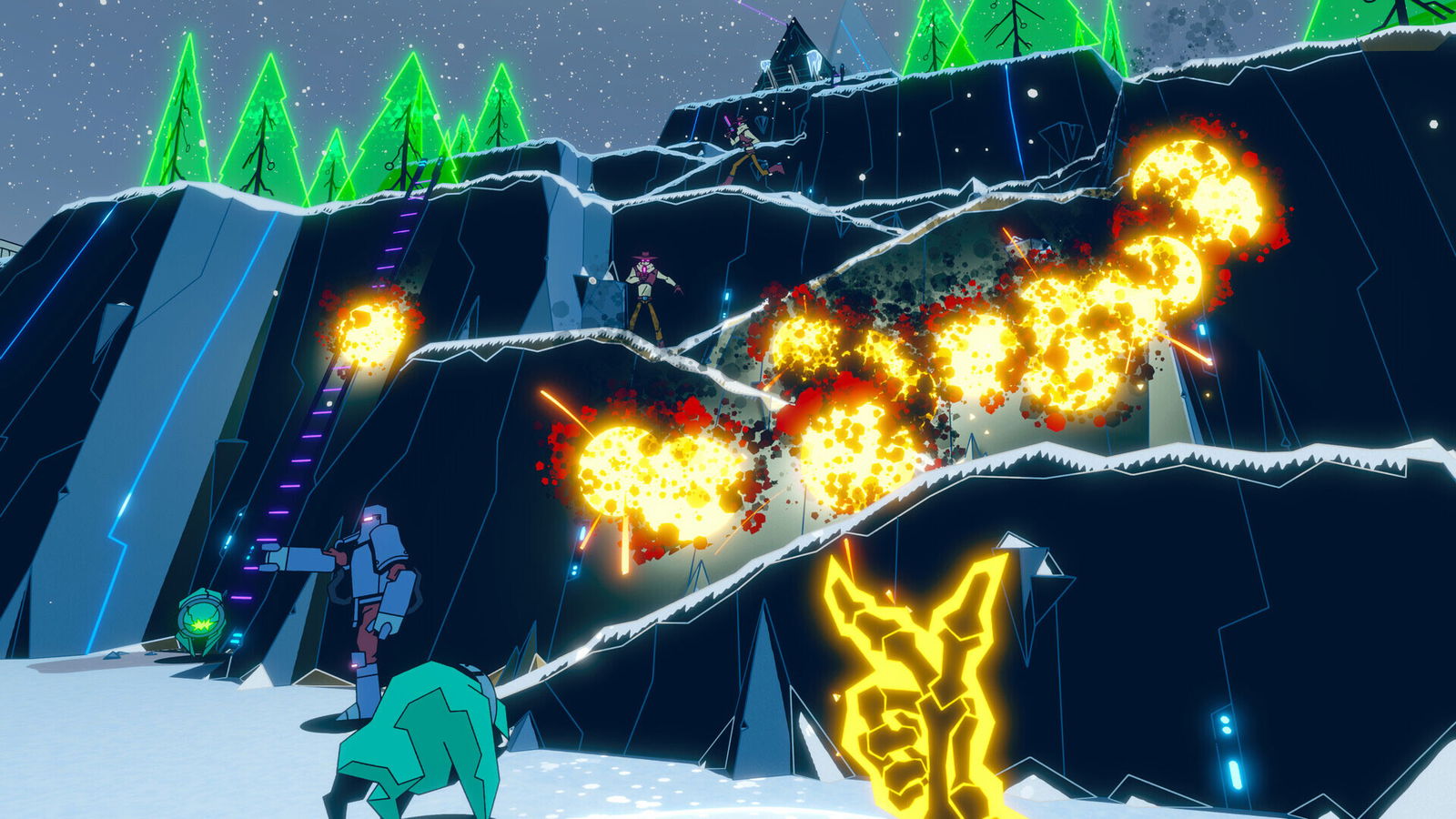
Minor character interactions shed light on the relationships within the Wild Bastards and the events that led to their grisly demise, adding additional narrative depth. However, the story is not the only thing building the game’s world. Little bits of flavour text in the enemy logs, along with how enemies interact during battles, make the world feel more authentic—at least as much as a cartoon Western set in space can be.
“This creates a unique situation for any given planet where players may need to approach combat with a single character or split up in order to collect the stranded Outlaw.”
In my preview, I touched on the gameplay but was surprised by its depth. At its core, Wild Bastards is a turn-based strategy roguelite where combat encounters take the form of first-person shooter battles in small arenas. True to the roguelite genre, the more you play, the more complex it becomes—introducing not only new enemies but also new worlds with environmental hazards to navigate.
Each “round” begins on a Galaxy Map, with planets highlighting specific types of loot that can be found. Due to the game’s random nature, every decision becomes a nail-biter, as once you commit to a certain path, there may be no turning back—and going after something valuable could lead to some extremely difficult encounters down the line.
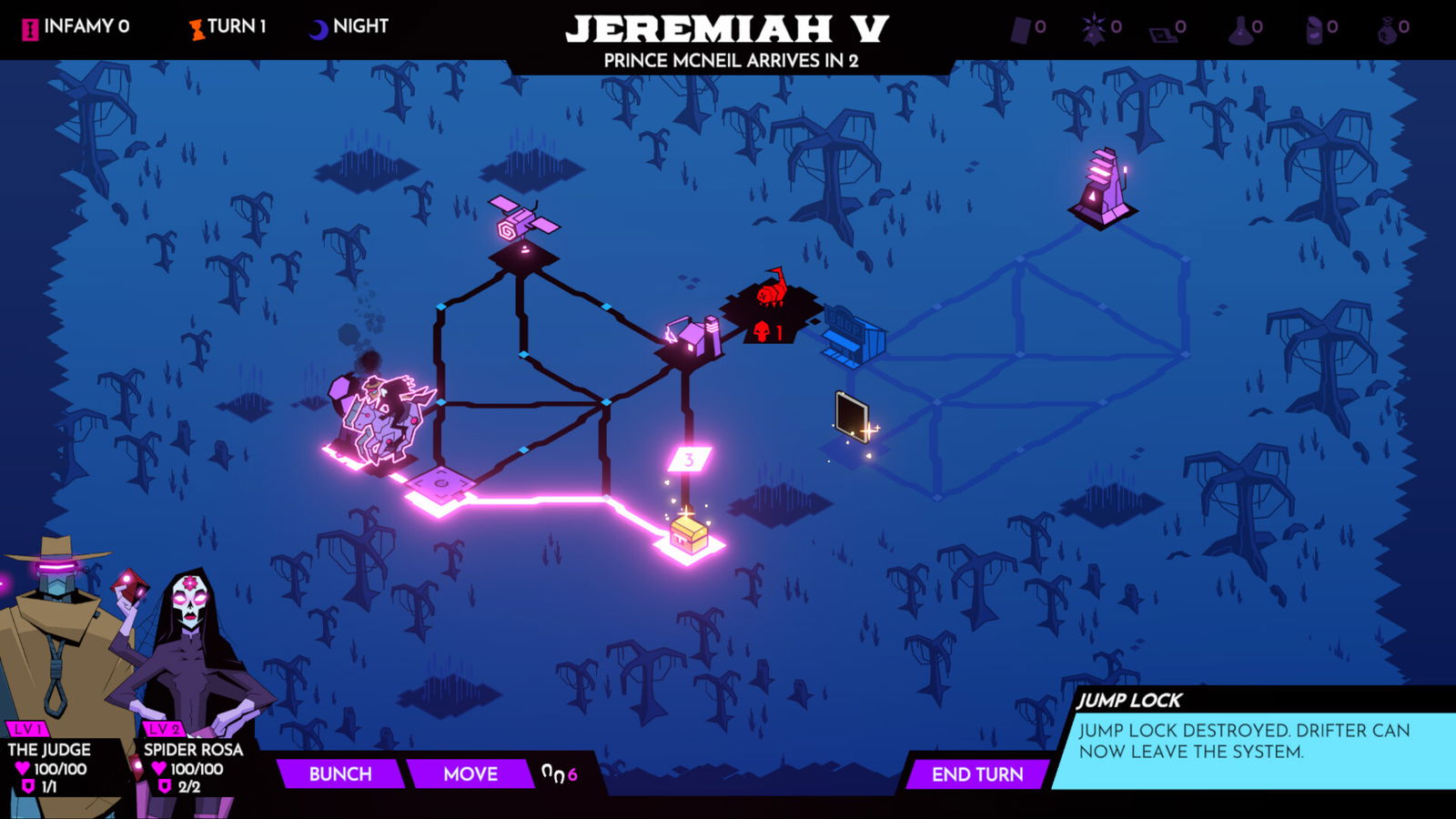
Approaching each planet involves a mix of luck and strategy. Every world has a set number of outlaws that can beam down, and players must decide whether to bring characters they prefer or those best suited to the situation. However, choosing characters isn’t straightforward. Characters are grouped in pairs, and players can switch between them in combat or swap them out on the planet map.
However, beaming down to a planet isn’t always reliable—some characters will land successfully, while others may not. This creates unique situations on each planet, where players might have to approach combat with a single character or split up to rescue a stranded outlaw. It adds a layer of tension and strategy as players decide who is best suited to handle combat alone while also maximizing loot collection and escaping before one of the Princes arrives.
Character relationships further complicate this dynamic. As I mentioned in my preview, characters have a random chance of forming friendships or feuds when partnered together, which can impact gameplay. Rescuing a stranded character typically forges friendships, which offer helpful perks like health, shields, or combat buffs. However, characters who are feuding will refuse to beam down together.
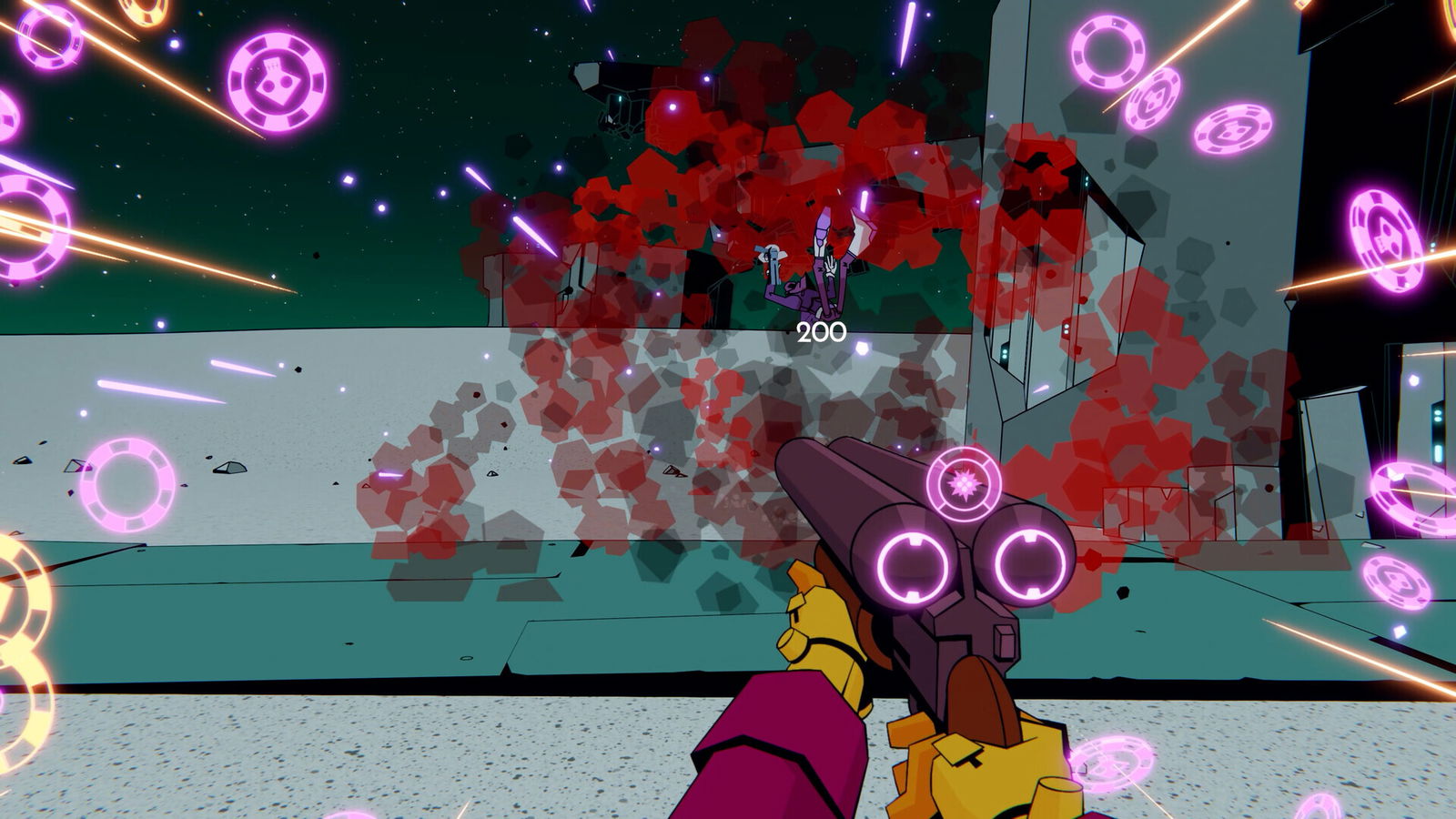
The only way to resolve a feud is by sharing a big batch of beans—and no, I’m not kidding. A hearty meal helps smooth things over, and finding cans of beans becomes a crucial resource if players want to keep their options open for tackling a planet. I loved how this not only fits the Western theme—where tempers ran hot, and fights could break out easily—but also adds another layer of complexity to keep players on their toes.
I mentioned Wild Bastards’ roguelite elements in my preview, but the game offered much more than I expected. While players lose any items and gear collected after completing a galaxy, they can find Aces, which provide permanent buffs to their characters. These come in three types: Standard Aces, which offer minor upgrades; Core Aces, which provide more significant boosts; and Charged Aces.
Charged Aces add an extra layer of strategy. They grant buffs as long as an outlaw has enough energy, with each beam down to a planet depleting their reserves slightly. While these Aces can be replaced, players must manage their outlaws effectively. Allowing them to rest between runs will make them more efficient in future battles.
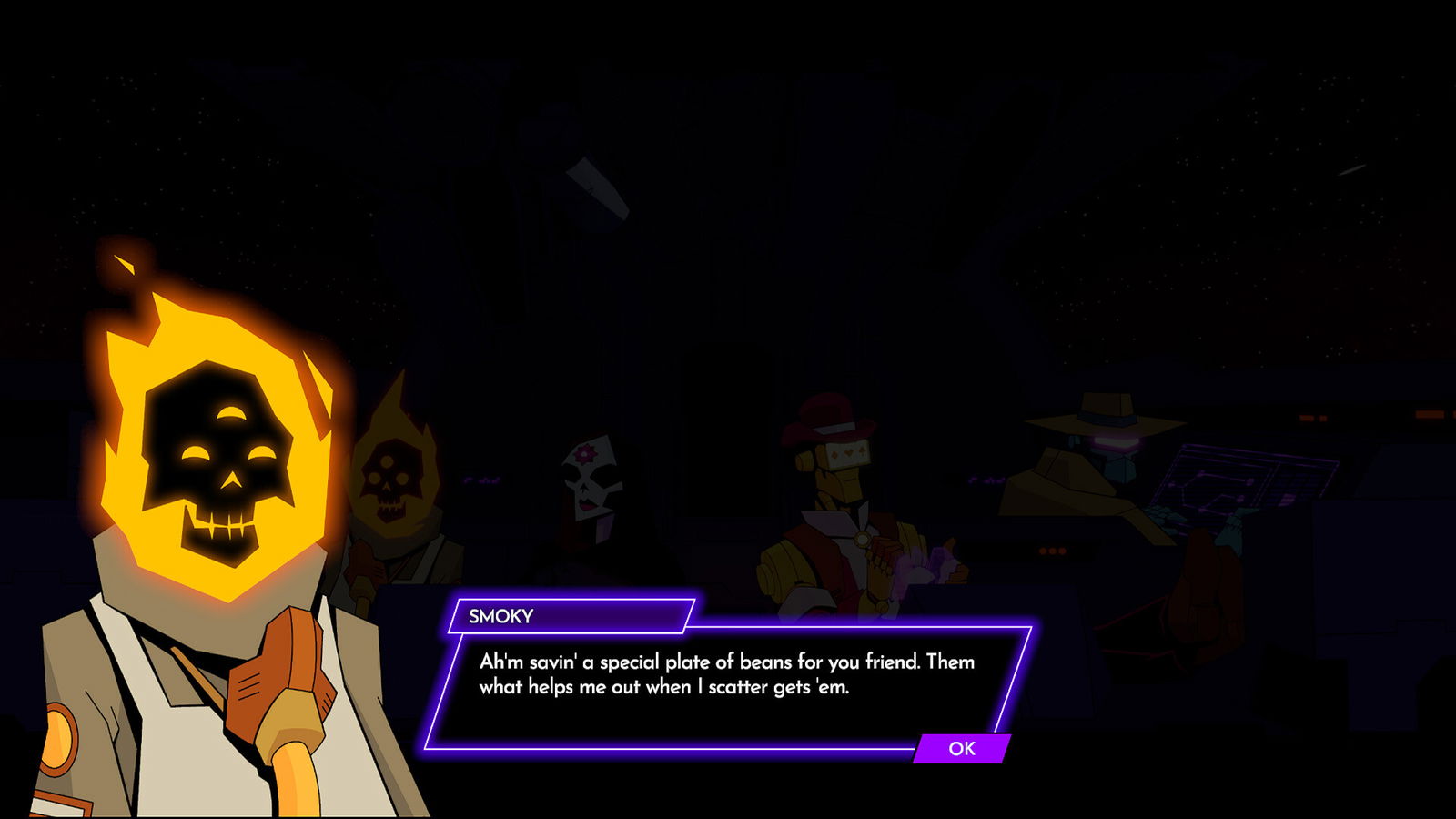
There are so many interesting variables in Wild Bastards that the game never stops being engaging or fun. And I haven’t even mentioned the characters themselves, who are all visually distinct and bring something unique to each fight. One of my favourites was Smoky—a living, flaming alien skeleton serving as the group’s cook. He speaks in a raspy voice, as if every word is a cough, and his weapon is his flaming hand, which shoots explosive fireballs that set enemies ablaze.
“I knew I was going to like Wild Bastards but I was consistently surprised by just how much I did.”
Another standout for me was The Judge, a robot executioner with a long-range rifle. He builds a hangman’s noose for every critical hit, and after three critical hits, the next shot is an instant kill. On top of using mods to customize characters differently with each run, discovering new characters and how they played kept me excited and eager to try different combinations.
While the FPS gameplay is solid, my one complaint with Wild Bastards is that it can sometimes feel restrictive. Enemies seem to hit you with pinpoint accuracy regardless of your movement, and some enemies with homing attacks can instantly kill any outlaw that gets too close. A few more movement options, like a slide or a dodge maneuver, could have alleviated some of this frustration.
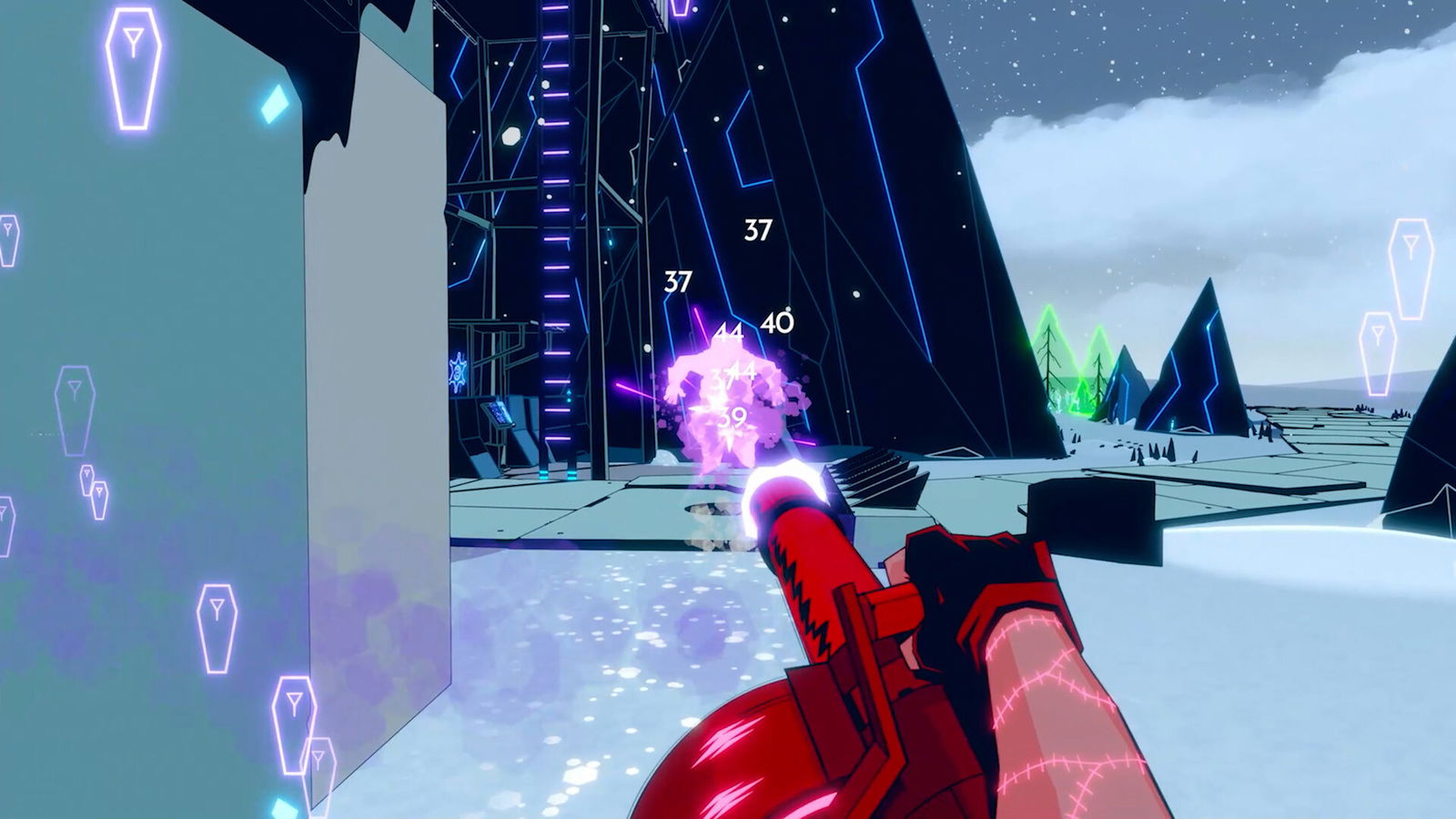
Wild Bastards oozes style at every turn. I personally love the cel-shaded art style, which combines bright colours with a neon aesthetic, giving the entire game a futuristic and alien feel. The way the 2D character sprites move around in 3D environments adds an interesting visual layer reminiscent of games like Demon Turf or Tinykin.
The voice acting and soundtrack further enhance this unique style, which embraces a Spaghetti Western vibe, keeping the game fun and lighthearted. The Wild Bastards showcase various character types and cultures, giving each a distinctive vocal flair. Meanwhile, the enemies lean into more comedic territory, sporting either exaggerated Southern drawls or over-the-top British accents.
And just for a small side note, I genuinely couldn’t help but laugh while playing Wild Bastards when I realized that it really is like the antithesis of Concord, a Wild West but in a Space FPS with a cast of 13 characters, all of whom are not only visually unique but distinctive in both how they play and how they interact with each other and the world.
Each enemy also has a distinct personality and unique dialogue during combat. The gameplay is incredibly deep and well-designed, with genuine risk-versus-reward situations and meaningful choices for players. After the failure of Concord, Wild Bastards feels like a true balancing of the cosmic scales.
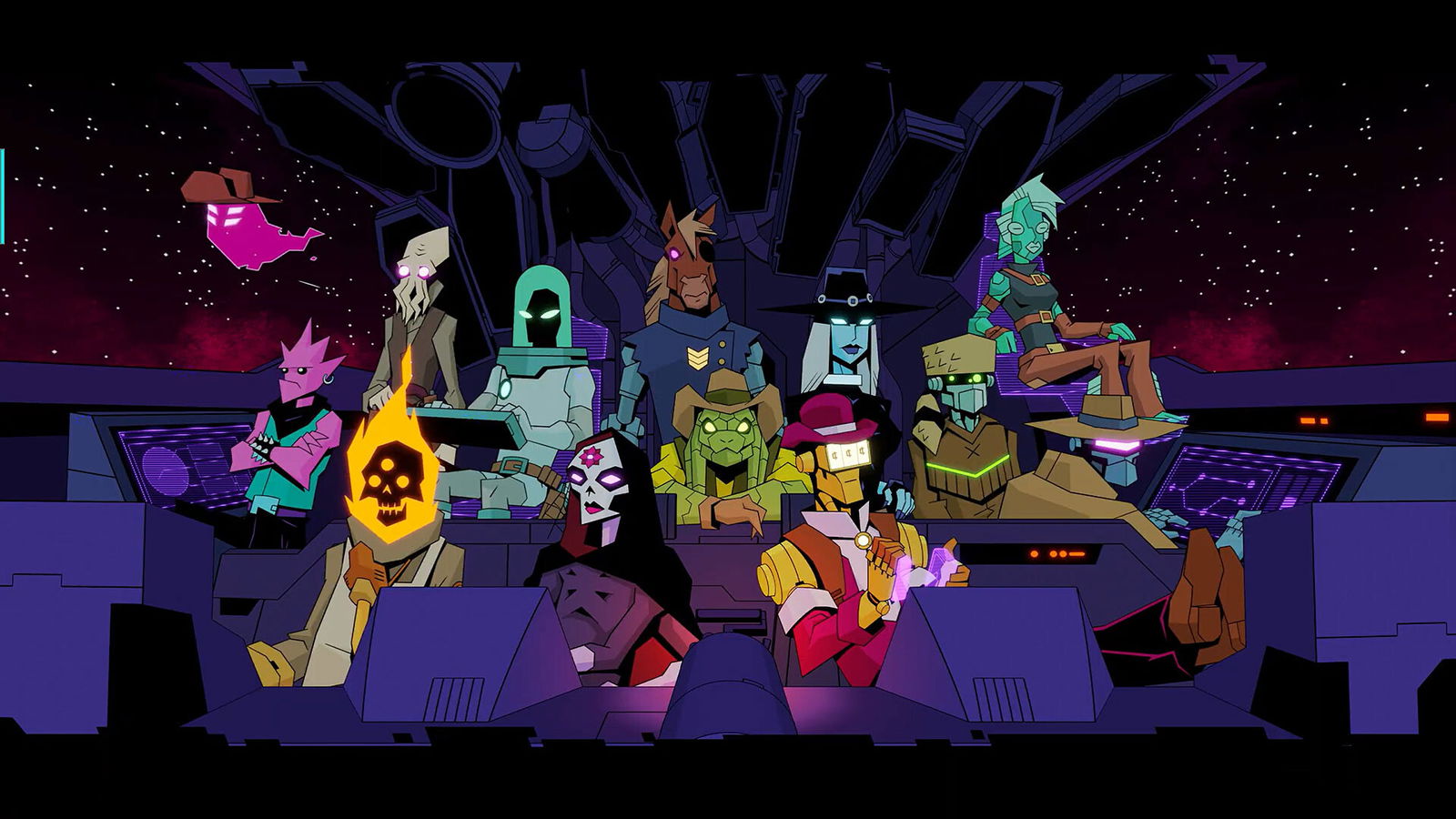
I knew I was going to enjoy Wild Bastards, but I was consistently surprised by how much I did. It’s incredibly engaging and fun, with a world so full of life and character that it practically begs to be played. It’s the perfect pick-up-and-play game, especially suited to a handheld system like the Switch—but good luck putting it down once you start.
